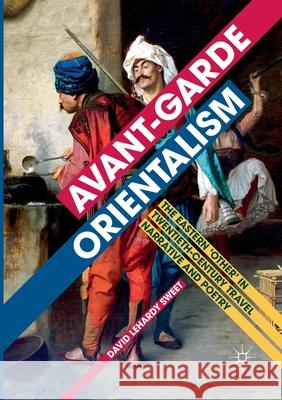Avant-Garde Orientalism: The Eastern 'Other' in Twentieth-Century Travel Narrative and Poetry » książka
topmenu
Avant-Garde Orientalism: The Eastern 'Other' in Twentieth-Century Travel Narrative and Poetry
ISBN-13: 9783319843834 / Angielski / Miękka / 2018 / 318 str.
Avant-Garde Orientalism: The Eastern 'Other' in Twentieth-Century Travel Narrative and Poetry
ISBN-13: 9783319843834 / Angielski / Miękka / 2018 / 318 str.
cena 403,47
(netto: 384,26 VAT: 5%)
Najniższa cena z 30 dni: 385,52
(netto: 384,26 VAT: 5%)
Najniższa cena z 30 dni: 385,52
Termin realizacji zamówienia:
ok. 22 dni roboczych
Bez gwarancji dostawy przed świętami
ok. 22 dni roboczych
Bez gwarancji dostawy przed świętami
Darmowa dostawa!
Kategorie:
Kategorie BISAC:
Wydawca:
Palgrave MacMillan
Język:
Angielski
ISBN-13:
9783319843834
Rok wydania:
2018
Wydanie:
Softcover Repri
Ilość stron:
318
Waga:
0.40 kg
Wymiary:
21.01 x 14.81 x 1.78
Oprawa:
Miękka
Wolumenów:
01
Dodatkowe informacje:
Wydanie ilustrowane











